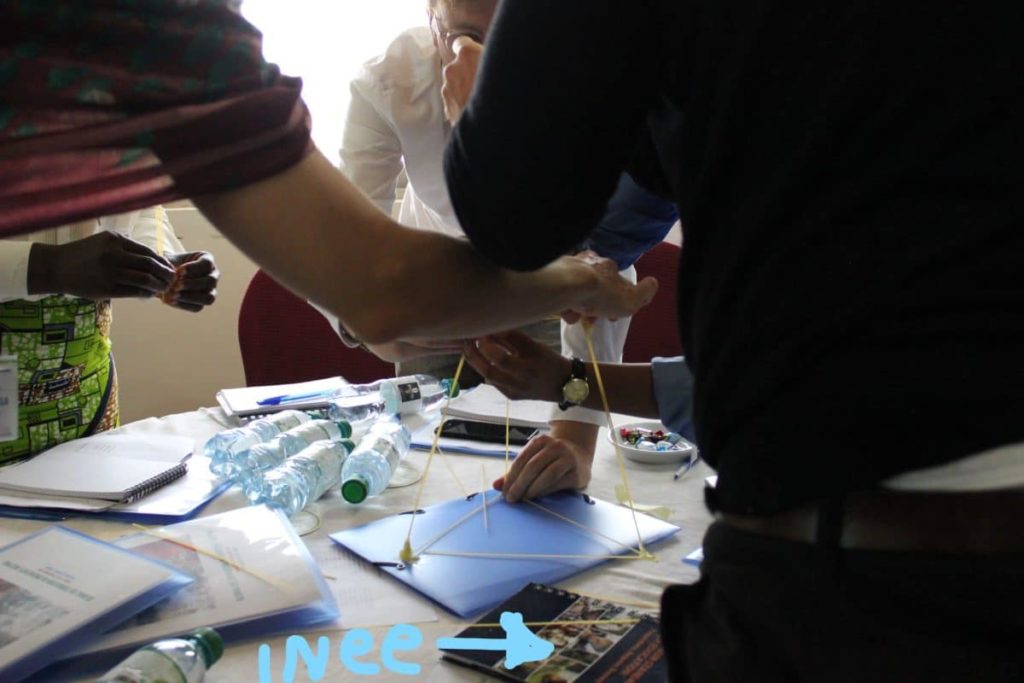Anne Marie McCarthy, Plan International Ireland’s Emergencies’ Programme Manager reports live from Dakar, Senegal.
18 years have passed since the Education for All (EFA) conference in Dakar. The Dakar Framework, agreed in April 2000, committed that all children would receive primary education by 2015. I was living in Dakar at the time and working for CONGAD, the organisation responsible for organising the NGO event on EFA. This was also the year of Jubilee South (Dakar), a movement which campaigned for the cancellation of Third World debt by 2000. The new millennium and the millennium development goals brought great optimism that we could in fact achieve universal basic education, and that by cancelling the debt which crippled many low income countries, they would be able to invest in education and other basic social services. Progress has made been made in both areas, but there are still 264 million children and youth not going to school. (A 2015 UNESCO review indicates that only a third of countries reached all the goals with measurable targets). Plan International is one of the organisations which is working to educate children, in development and humanitarian contexts.
This week, I found myself back in Dakar, where we held the first Global Training on Education in Emergencies in Plan International. Participants came from Plan Offices around the world. It was a time for reflection, sharing and learning. What an interesting agenda we had – presentations from country offices, gallery walks where we all had the opportunity to showcase the work that we are proudest of, and learning on how to do our work better.

Underpinning all of this for me though were two crucial elements:
1- The importance of Plan staff and how we care for them and the teachers who work in our programmes. One of the sessions looked at the role of a teacher – someone who supports the development of the child, who imparts knowledge, who guides children through their learning. To do this well in normal circumstances is a tough job (we all remember our teachers – either for the good job that they did or the tough time we had with them); but imagine how hard it is to be a teacher to a classroom of 100 children, who may have been displaced, who may be hungry, who may be targeted on the way to school, who may be traumatised, and who themselves are most likely underpaid, traumatised and fearful for the future. It is the toughest, but most important job there is.
2- The importance of early childhood years and the impact that this can have a child’s development potential. Of course adults also learn better through play and discussion. In the exercise below, teams were working on solid foundations for building their towers, as an analogy for the importance of the early years.
Note a copy of the INEE Minimum standards on the table – the bible for EiE programme staff!
The EFA was a breakthrough document in the area of education, and set out goals in early childhood care and education; the provision of free and compulsory primary education for all, learning and life skills for young people and adults, adult literacy, gender equality and improvements in the quality of education. However, these goals did not reference education in emergencies. The humanitarian community is finally recognising education in emergencies as a life-saving sector. We have a long way to go to reach our targets, and ensure that all children receive basic education at a minimum. We need to improve our influencing work in EiE, continue to improve the quality of our programming, and ensure appropriate duty care for our staff. We have a responsibility to protect our staff, ensure appropriate care for those working in crisis situations and provide psychosocial support for them as much as for our teachers.
My colleague Victoria in Plan Ireland recently gave us the tagline ‘Team work makes the dream work’. We must all work together to improve our collective impact, and continue to learn and share so that we can ensure that more children can go to school and learn in a safe and inclusive environment.
INO gratefully acknowledges the support of Irish Aid in the organisation of the training.